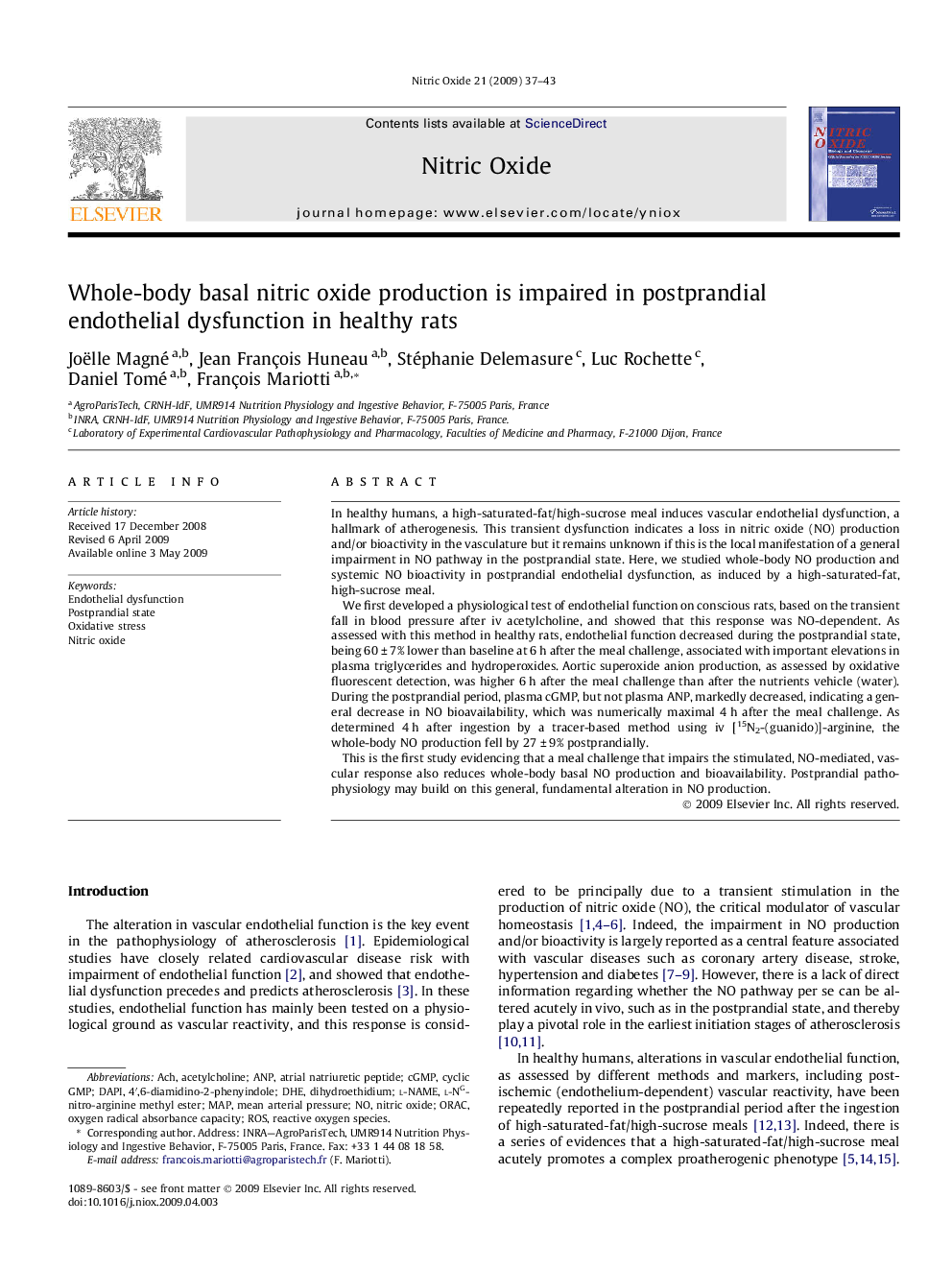| Article ID | Journal | Published Year | Pages | File Type |
|---|---|---|---|---|
| 2001658 | Nitric Oxide | 2009 | 7 Pages |
In healthy humans, a high-saturated-fat/high-sucrose meal induces vascular endothelial dysfunction, a hallmark of atherogenesis. This transient dysfunction indicates a loss in nitric oxide (NO) production and/or bioactivity in the vasculature but it remains unknown if this is the local manifestation of a general impairment in NO pathway in the postprandial state. Here, we studied whole-body NO production and systemic NO bioactivity in postprandial endothelial dysfunction, as induced by a high-saturated-fat, high-sucrose meal.We first developed a physiological test of endothelial function on conscious rats, based on the transient fall in blood pressure after iv acetylcholine, and showed that this response was NO-dependent. As assessed with this method in healthy rats, endothelial function decreased during the postprandial state, being 60 ± 7% lower than baseline at 6 h after the meal challenge, associated with important elevations in plasma triglycerides and hydroperoxides. Aortic superoxide anion production, as assessed by oxidative fluorescent detection, was higher 6 h after the meal challenge than after the nutrients vehicle (water). During the postprandial period, plasma cGMP, but not plasma ANP, markedly decreased, indicating a general decrease in NO bioavailability, which was numerically maximal 4 h after the meal challenge. As determined 4 h after ingestion by a tracer-based method using iv [15N2-(guanido)]-arginine, the whole-body NO production fell by 27 ± 9% postprandially.This is the first study evidencing that a meal challenge that impairs the stimulated, NO-mediated, vascular response also reduces whole-body basal NO production and bioavailability. Postprandial pathophysiology may build on this general, fundamental alteration in NO production.
